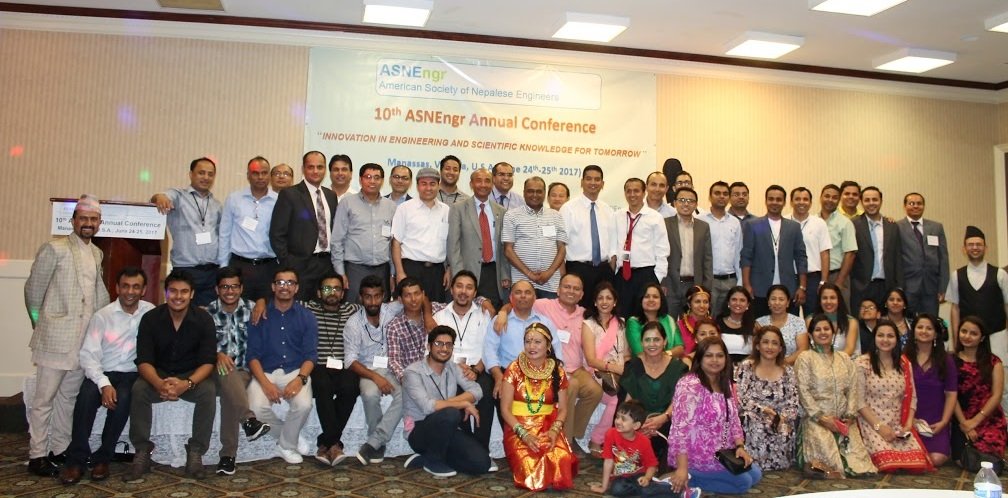
Keynote Speaker - Dr. Judith Mitrani-Reiser
Dr. Mitrani-Reiser is the director of Disaster and Failure Studies Program at the National Institute of Standards and Technology (NIST) and an Assistant Professor of Civil Engineering and Emergency Medicine at Johns Hopkins University (JHU). Her research is focused on disaster metrology, the performance assessment of critical infrastructure, the safety and economic impact of hazards on the built environment, the effective communication of these risks to the public, informed decision making for use in emergency management and policy making, and the interaction of humans with the built environment. She is leading a multidisciplinary staff responsible for conducting fact-finding investigations of structural failures and disasters that resulted in substantial loss of life or that posed significant potential for substantial loss of life; promoting the implementation of recommendations from those studies to improve codes, standards and practices; and carrying out the statutory responsibilities assigned by the National Construction Safety Team (NCST) Act. Dr. Mitrani-Reiser is an Associate of the Center for Refugee and Disaster Response (CRDR), a member of the American Society of Civil Engineers (ASCE), the Earthquake Engineering Research Institute (EERI), the Seismological Society of America (SSA), and the World Association for Disaster and Emergency Medicine (WADEM). She is the Vice Chair for ASCE’s Subcommittee on Multi-Hazard Mitigation, and is a member of ASCE’s Committee on Disaster Resilience of Structures and of the Committee of Critical Facilities in ASCE’s Infrastructure Resilience Division, and a member of EERI’s Learning From Earthquakes Committee.

Invited Speaker - Dr. Ayhan Irfanoglu
Dr. Irfanoglu is an associate professor of Civil Engienering at Lyles School of Civil Engineering in Purdue University. Following the 2015 April Gorkha Earthquake, engineers from Purdue University collaborated with Nepalese engineers and the Department of Urban Development and Building Construction of the Ministry of Urban Development to survey reinforced concrete (RC) buildings in Kathmandu. The reconnaissance effort, funded by the American Concrete Institute (ACI) and carried over two weeks in June 2015, resulted in data about 176 buildings in the capital. 30 of these RC buildings were high-rise (8 to 17 stories) while the remaining 146 were low-rise (7 or fewer stories). Observations made in Kathmandu, along with those made after earthquakes in Japan, Turkey, Haiti, and China, and insight from ACI 314 (“Guide to Simplified Design for RC Buildings”) were used to develop a set of guidelines for preliminary evaluation of RC buildings in Nepal. “Priority Index” (Hassan and Sozen, 1997) which ranks RC buildings in relative vulnerability against earthquake ground motions is used to compare surveyed buildings with those surveyed in Turkey after the 1999 earthquakes and those surveyed in Haiti after the 2010 earthquake. It is found that the mean Priority Index (PI) of low-rise buildings surveyed in Kathmandu was 0.19% while PI was 0.32% for buildings surveyed in Turkey and 0.24% for those surveyed in Haiti. A summary of the field data and observations made in Kathmandu, and their comparison with those made elsewhere, will be given. The aforementioned guidelines for preliminary evaluation of RC buildings will be presented.
Announcement and Call for Abstracts
American Society of Nepalese Engineers (ASNEngr) cordially invites you to participate in the
10th ASNEngr Annual Conference
“Innovation in Engineering and Scientific Knowledge for Tomorrow”
Date: June 24 - 25, 2017
Location:
Greater Washington D.C. Area
Best Western Battlefield Inn, 10820 Balls
Ford Road, Manassas, Virginia 20109, U.S.A.
Engineers, scientists and professionals from closely related disciplines of science and technology will gather to discuss the recent developments in engineering, science and technology and their impacts in the society. The conference will be held in Virginia, U.S.A. hosted by the Greater Washington D.C. Chapter of ASNEngr. Paper presentations are anticipated covering wide varieties of engineering, scientific and technological topics, including but not limited to, the following:
- Recent advances in research, innovation, development, and education in engineering, science, and technology
- Application of engineering and scientific knowledge into practice (knowledge share)
- Advances in infrastructure development, analysis, design, monitoring and sustainability approach
- Earthquake recovery, reconstruction and disaster preparedness in Nepal
- Smart, intelligent and bio-inspired structures and engineering systems and sensors
- Renewable and sustainable energy technologies
- Environmental and green/clean technology for sustainable development
- Intelligent computing, information technology and wireless communication, especially for developing countries
- Rapid prototyping, 3-D printing, adaptive, and autonomous manufacturing
- Smart and intelligent transportation systems, ground and airborne
- Space exploration, space-based and aerospace technologies for terrestrial application and use
- Ground, air, and spaced remote sensing and GPS
- Social and Economic issues in engineering applications
- International collaboration in engineering, science and technology, especially between individuals/organizations from the U.S. and Nepal
- Research and innovation by Nepali origin engineers and scientists
- Other engineering and scientific topics of interest
Student Poster Competition:
This year an added attraction at the ASNEngr Conference will be the “Student Poster Competition.” Graduate and undergraduate students in all engineering and related science and technology fields will be eligible to compete. An abstract for the poster competition should also be prepared following the guidelines given above. The first author must be a student and the 2nd author his/her faculty advisor. The student author must be physically in attendance at the conference to present the poster. The guidelines and format for poster preparation will be provided after the decision on the abstracts has been made. All abstracts for the student poster competition must be submitted by the due date indicated above. To be included in the competition, at the top of the abstract the phrase “Student Poster Competition” should be clearly written. Winner(s) of the poster competition will be recognized appropriately at the conference.
Conference Proceedings:
All accepted abstracts will be compiled in the form of a conference proceedings/book of abstracts and will be posted on the ASNEngr website. For reference, please see the proceedings of the previous years’ conferences available at https://www.asnengr.org.
Registration
All conference attendees are required to register. Online registration is available here. On-site registration at the conference venue will also be available.
